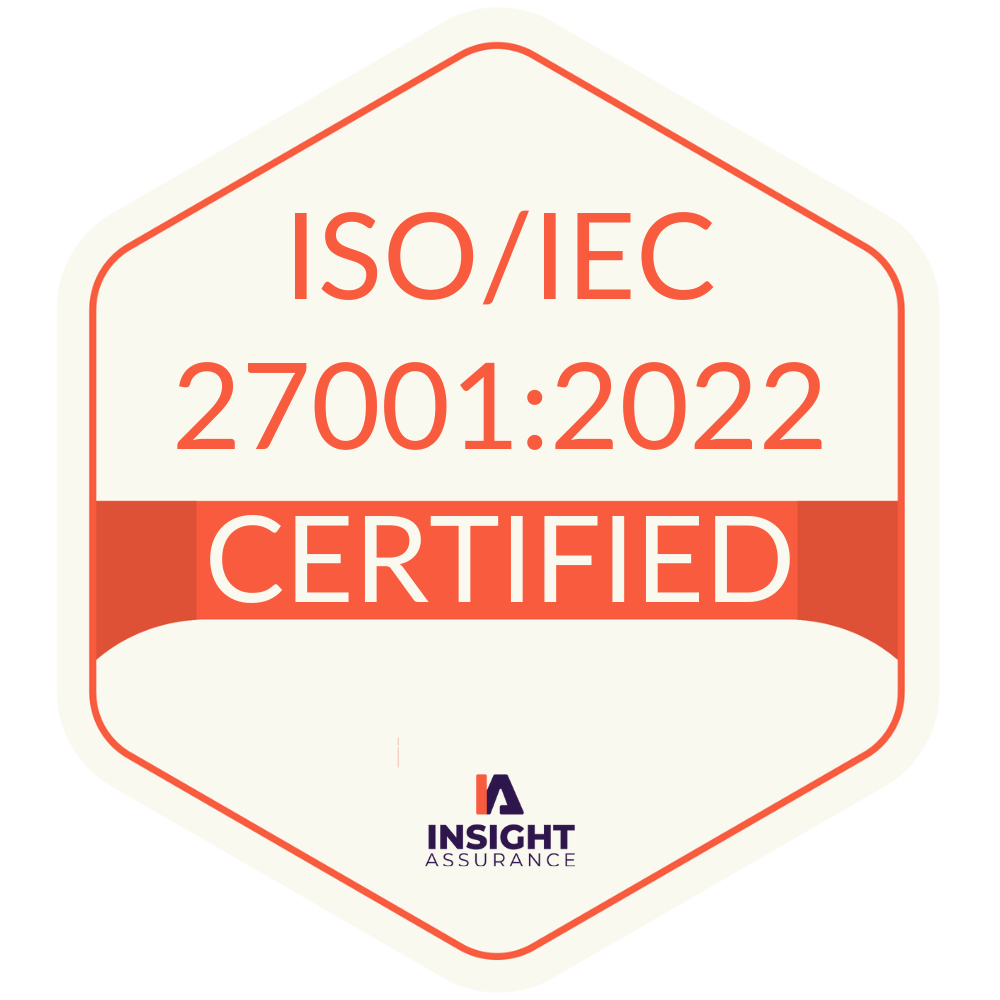The movement of data across borders is a daily reality for businesses and governments. In principle, this data flow is seamless. However, this is often at odds with the principle of data sovereignty—the idea that data is subject to the laws and regulations of the country in which it is collected and stored.
Trade agreements play a crucial role in shaping the landscape of data sovereignty, introducing clauses that can either reinforce or challenge these principles. Let’s explore the impact of such trade agreements on data sovereignty, with a particular focus on the implications for Information Security Registered Assessors Program (IRAP)-compliant systems and services.
Get started on your IRAP journey. Speak to a cybersecurity expert today.
Understanding Data Sovereignty in the Context of Trade Agreements
Data sovereignty refers to the legal and regulatory control a country exercises over data within its borders. It is a cornerstone of national security, privacy protection, and economic policy. However, as countries enter into trade agreements, they often negotiate terms that can either reinforce or dilute their control over data.
Trade agreements are international pacts that traditionally focus on the exchange of goods and services. In the digital age, however, they increasingly include provisions on data flows, privacy, and cybersecurity. The terms of these agreements significantly influence how countries enforce their data protection laws and manage digital information. These provisions can broadly be categorized into two types:
- Data Residency Requirements: Clauses that require data generated within a country to be stored and processed within that country’s borders.
- Free Flow of Data Provisions: Clauses that promote the unrestricted movement of data across borders, often to facilitate international trade and business operations.
The Pros and Cons of Trade Agreements on Data Sovereignty
Pros
- Economic Growth and Innovation
- Free Flow of Data: Trade agreements that promote the free flow of data can drive economic growth by enabling businesses to operate more efficiently across borders. For instance, companies can centralize their data management systems in countries with advanced infrastructure, reducing costs and improving operational efficiency.
- Access to Global Markets: Such provisions can also provide businesses with access to global markets, facilitating the expansion of e-commerce and digital services.
- Standardization and Harmonization
- Unified Data Standards: Trade agreements often encourage the adoption of international standards for data protection and cybersecurity, which can simplify compliance for multinational companies and foster a more predictable regulatory environment.
- Interoperability: By promoting interoperability between different regulatory frameworks, these agreements can reduce barriers to entry for businesses looking to expand into new markets.
Cons
- Erosion of National Control
- Dilution of Data Sovereignty: Provisions that allow for the free flow of data can undermine national data sovereignty by limiting a country’s ability to enforce its data protection laws. For example, if data is stored in a country with weaker privacy regulations, it may be more vulnerable to unauthorized access or misuse.
- Conflicts with Domestic Laws: Countries that enter into trade agreements with conflicting data sovereignty provisions may face challenges in enforcing domestic laws, such as the General Data Protection Regulation (GDPR) in the European Union or Australia’s Privacy Act.
- Increased Security Risks
- Vulnerability to Foreign Surveillance: Free flow of data provisions can expose sensitive data to foreign surveillance, particularly if data is stored or processed in jurisdictions with extensive government access to data, such as the United States under the CLOUD Act.
- Challenges in Incident Response: In the event of a data breach, responding to and mitigating the impact of the breach may be complicated by the involvement of multiple jurisdictions, each with its own legal requirements.

Impact on IRAP-Compliant Systems and Services
The IRAP framework is designed to ensure that systems and services used by the Australian government comply with stringent security and privacy standards. Trade agreements with clauses on data flows can have significant implications for IRAP-compliant systems:
- Compliance Challenges
- Navigating Conflicting Requirements: IRAP-compliant systems that rely on cloud service providers with a global presence may face difficulties in ensuring compliance with Australian data sovereignty laws if trade agreements require or allow data to be processed or stored offshore.
- Adaptation to New Regulations: As trade agreements introduce new data flow provisions, IRAP guidelines may need to be updated to reflect these changes. This could involve revising security controls, updating risk assessments, and re-certifying systems to ensure ongoing compliance.
Learn more: What is the IRAP Compliance Process? A Comprehensive Guide
- Operational Impact
- Cost Implications: Data residency requirements mandated by trade agreements may increase operational costs for IRAP-compliant systems, particularly if they require the establishment of local data centers or additional security measures to ensure compliance.
- Complexity in Data Management: Managing data across multiple jurisdictions, each with its own legal requirements, can introduce complexity and increase the risk of non-compliance. This is particularly challenging for IRAP-compliant systems that handle sensitive or classified data.
Case Studies and Examples
Comprehensive and Progressive Agreement for Trans-Pacific Partnership (CPTPP)
- Free Flow of Data Provisions: The CPTPP includes provisions that prohibit member countries from mandating data localization as a requirement for conducting business. This raises concerns that Australian businesses might be compelled to store data in countries with less stringent privacy protections, potentially compromising the security standards required under the Hosting Certification Framework (HCF).
Learn more: Understanding the Hosting Certification Framework: Your Guide to Compliance and Security
- Implications for HCF: To maintain compliance, Australian government agencies using data centers certified under the HCF may need to establish specific contractual agreements with their service providers. These agreements would ensure that data either remains within Australia or is managed under equivalent protection measures, even if stored or processed offshore. This approach is crucial to upholding the security and privacy standards set forth by the HCF, despite the challenges posed by international trade agreements like the CPTPP.
USMCA (United States-Mexico-Canada Agreement)
- Data residency and Sovereignty: The USMCA includes provisions that prevent member states from imposing data residency requirements. While this promotes efficiency for multinational companies, it raises sovereignty concerns for data stored in jurisdictions with different legal standards.
- Impact on Compliance: For Australian companies operating under IRAP, reliance on US-based cloud providers subject to USMCA rules may introduce challenges in maintaining compliance with IRAP’s data sovereignty requirements, particularly concerning the handling of sensitive or classified information.
Business Impact and Strategic Solutions
Business Impact
- Risk of Non-Compliance: Companies that fail to navigate the complexities introduced by trade agreements may face penalties for non-compliance with IRAP, as well as reputational damage and legal liabilities.
- Operational Delays: The need to comply with multiple legal frameworks can lead to delays in system deployment and increased costs, particularly if businesses need to establish new data management practices or infrastructure.
Strategic Solutions
- Hybrid Data Management Strategies
- Localized Data Storage: To comply with data residency requirements, businesses can implement a hybrid approach by storing sensitive customer workloads locally while utilizing global cloud services for non-sensitive operations. This ensures that critical data remains within the country’s borders, while less sensitive metadata or management plane data can be processed abroad, provided it doesn’t violate sovereignty rules. Additionally, the use of physically isolated cages within local data centers adds an extra layer of security, further ensuring that sensitive data is protected and compliant with regulatory standards.
Learn more: Cybersecurity Gets Physical: Tips for Selecting the Best Datacenter Partner
- Data Segmentation: Businesses can enhance compliance by segmenting data according to its sensitivity and regulatory requirements. Sensitive data subject to strict sovereignty rules can be managed and stored separately from less critical information, reducing the risk of non-compliance. This approach ensures that only minimal and less sensitive data is processed or stored outside the country, aligning with both operational needs and legal obligations.
- Contractual Safeguards
- Data Protection Clauses: Companies can negotiate contracts with cloud service providers to include specific data protection clauses that ensure compliance with IRAP and other relevant regulations, even when data is stored or processed offshore. These clauses might include:
- Data Residency Requirements: A clause that mandates data be stored within Australian borders or specifies that any offshore storage must meet IRAP-compliant security standards. For example, the contract could require that sensitive data be stored in certified Australian data centers and that only non-sensitive data, such as anonymized or aggregated metadata, may be processed offshore.
- Data Encryption: A clause requiring that all data, whether in transit or at rest, must be encrypted using IRAP-approved encryption methods. This ensures that even if data is stored or processed outside of Australia, it remains secure and inaccessible to unauthorized parties.
- Access Control and Monitoring: A clause that restricts access to data based on the principle of least privilege, ensuring that only authorized personnel can access sensitive information. This might also include requirements for continuous monitoring and logging of all data access activities to detect and respond to unauthorized access attempts.
- Data Breach Notification: A clause that obligates the cloud service provider to promptly notify the company of any data breaches or security incidents. This notification must be in accordance with both IRAP and the Australian Notifiable Data Breaches (NDB) scheme under the Privacy Act 1988, ensuring timely and appropriate responses.
- Subcontractor Compliance: A clause that requires the cloud service provider to ensure that any subcontractors or third-party vendors handling the data are also compliant with IRAP standards. This extends the responsibility of compliance beyond the primary service provider, covering the entire data supply chain.
- Audits and Compliance Checks: Regular audits and compliance checks are essential to verify that data management practices align with both IRAP standards and the evolving requirements of trade agreements. These activities might include:
- Internal Audits: Conducting regular internal audits to assess compliance with the contractual data protection clauses. This could involve reviewing access logs, encryption practices, and incident response protocols to ensure they meet IRAP requirements.
- Third-Party Audits: Engaging independent third-party auditors to evaluate the cloud service provider’s compliance with IRAP and other relevant standards. This provides an objective assessment and can identify areas for improvement.
- Compliance Certifications: Requiring the cloud service provider to maintain certifications such as ISO/IEC 27001 (Information Security Management) or SOC 2 Type II (Service Organization Controls), which align with IRAP’s security controls. These certifications demonstrate a commitment to maintaining high standards of data protection.
- Ongoing Monitoring: Implementing continuous monitoring tools to track the cloud service provider’s adherence to IRAP requirements in real-time. This proactive approach helps identify potential compliance issues before they become significant problems.
By embedding these specific data protection clauses into contracts and conducting regular audits, companies can ensure that their data is handled in strict compliance with IRAP standards, even when leveraging global cloud services.
- Collaboration with Government and Industry Bodies
- Policy Advocacy: Businesses can actively engage with government and industry bodies to influence trade agreements that strike a balance between the free flow of data and the protection of data sovereignty. Participating in public consultations, providing feedback on draft agreements, and collaborating with advocacy groups are effective ways to ensure that business interests are represented. For example, the Australian Privacy Act 1988 and the Telecommunications and Other Legislation Amendment (Assistance and Access) Act 2018 (TOLA) have significant implications for how data is managed and protected. By engaging in advocacy, businesses can push for trade agreements that respect these laws, ensuring that data stored or processed offshore still complies with domestic privacy and security standards.
- Adoption of Best Practices: To navigate the complex landscape of data sovereignty and international trade agreements, businesses should adopt best practices for data management and security. This includes adhering to best practices and frameworks like the Essential 8, HCF and IRAP, which set rigorous standards for data protection and compliance. Best practices might involve using encryption, maintaining audit logs, and implementing data minimization strategies. Additionally, businesses should consider certifications such as ISO/IEC 27001 for information security management or SOC 2 for service organization controls, which can demonstrate a commitment to high standards of data protection. These practices not only ensure compliance with existing laws but also position businesses to adapt to new regulations or trade agreements that may arise.
Learn more: Mastering Cybersecurity: Your Guide to the Essential 8 Australia Strategy
Conclusion
Trade agreements play a critical role in shaping the future of data sovereignty, introducing new opportunities and challenges for businesses and governments alike. For those operating under the IRAP framework, understanding the implications of these agreements is essential for maintaining compliance and protecting sensitive data. By adopting strategic solutions, such as hybrid data management and contractual safeguards, businesses can navigate the complexities of data sovereignty in the digital age, ensuring that they remain compliant, secure, and competitive in a global market.

38North Security can help you navigate the intricacies of data sovereignty, IRAP, and other compliance frameworks to help your organization open up new markets. Get in touch with us today.






